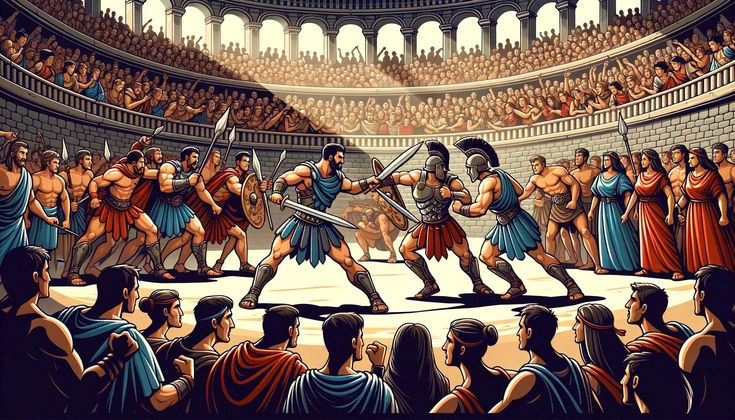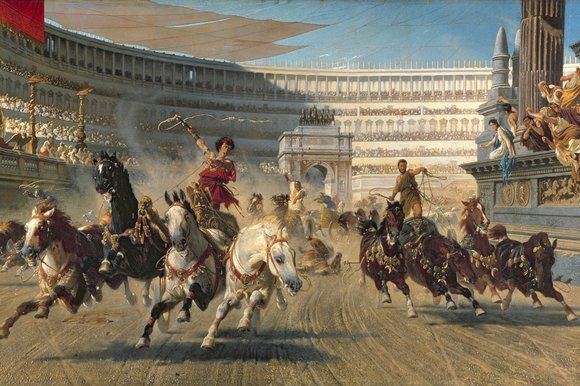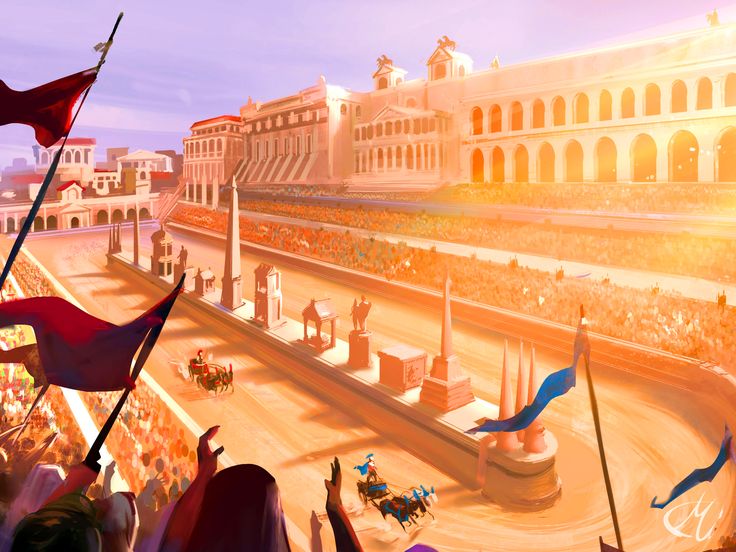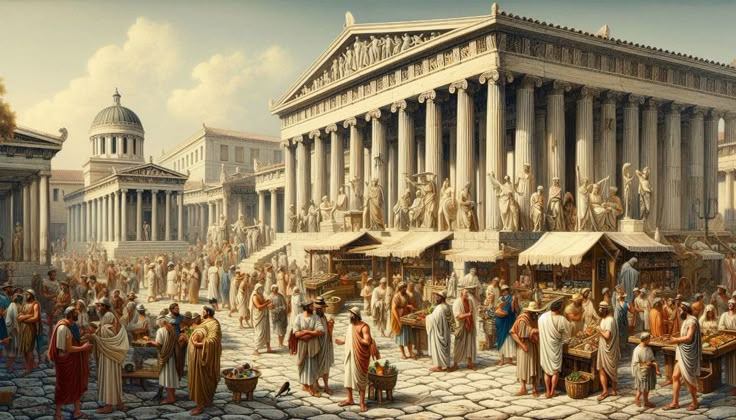When Rome was falling apart, the emperors decided to hit “Distract Mode.” They kept the people busy with free food, outrageous stadium shows, and enough drama to fill the minds of the people of ancient Rome.
“So… are we really any different, or did we just replace sand and blood with screens and Wi-Fi?“
Today, we don’t pack ourselves into the Colosseum; we just unlock our smartphones and scroll, scroll, scroll. So… are we really any different, or did we just replace sand and blood with screens and Wi-Fi?
Back then, the “shows” were wild. There were thundering chariot races, where fans wore team colors like superfans at a football final; gladiator face-offs with swords, shields, and crowd-pleasing comebacks, reminiscent of beast hunts that threw lions, bears, or leopards into the arena.
“As long as the people of Rome were fed and entertained, they would not complain too much or riot.“
There were even fake naval battles when they flooded the floor and staged mini sea wars. They also acted out myths with real people, and yes, losers could actually die. With bread in their hand and a sparkle in their eyes, the crowd went wild and politics was out of their mind.
Now think about what fills your feed. Viral dance challenges, streamer showdowns, meme wars, celebrity callouts, live e-sports tournaments, political drama compressed into 30-second clips, and endless “watch to the end” shocking moments. Two different eras, different forms of entertainment, but the same human brain that craves hits of excitement so that it can ignore the boring (but important) stuff.
The Original Doomscroll: Bread, Grain, and the Crowd
When ancient Romans said people wanted “bread and circuses,” they weren’t talking about free snacks and clown shows. They meant that as long as the people of Rome were fed and entertained, they would not complain too much or riot.
Rome was vast, with a large population, and keeping everyone’s stomachs full was a serious political issue. To solve the problem, the government built the Annona, a massive grain delivery system.
Grain was shipped in from all over the empire, and they were either sold cheaply to citizens or given out for free. This act was not because the Roman government was kind to its citizens; it was a strategy. Hungry crowds riot and cause chaos, while well-fed crowds cheer.
Roman poets, such as Juvenal, joked that people cared more about receiving free bread and watching epic gladiator battles than participating in politics or holding leaders accountable.
“Rome’s history illustrates how leaders can become entrenched in distributing handouts to maintain popularity, while the more significant issues quietly deteriorate beneath the surface.“
Let’s be honest, though, who would want to argue in the Senate when there is a free loaf of bread and a chariot race?
The free food eventually turned into a huge PR project. The Romans even made Annonna into a goddess. She showed up on coins and statues with a divine food delivery ad that said, “The emperor feeds you, so don’t mess with him.”
Here is the wild part: The government still does this kind of thing today. This time, it comes in the form of subsidies, stimulus checks, or even those targeted coupons on your phone. They might calm people down for a while, but they do not solve the real problems. Rome’s history illustrates how leaders can become entrenched in distributing handouts to maintain popularity, while the more significant issues quietly deteriorate beneath the surface.
When Politics Went Full Showbiz
If free grain kept the bellies of Roman citizens full, then nonstop shows kept their brains busy. The strategy was clear: food so they don’t riot, and fun so they don’t complain.

The Roman government filled the calendar with festival days that were packed with games, recess, and wild “you had to be there” spectacles.
Emperors quickly realized that a laughing, cheering, and betting crowd is one that will not question them about taxes, ongoing wars, or corruption. Ancient writers grumbled that people skip serious debates to chase the next big show. This sounds very much like doomscrolling on TikTok instead of doing something important.
The venue for the shows in Rome was the Circus Maximus. It was a race track that was so massive; ancient sources brag that it could accommodate hundreds of thousands of spectators. Imagine several modern sports stadiums squished into one giant bowl.
Chariot teams flashed bold merch colors, fans picked sides and yelled with all their might, gamblers placed risky bets, rumors and gossip spread through the stands faster than the horses on the track. And if you craned your neck, you might just see the emperor chilling in the VIP box; proof that power was watching and being watched.
“Politics turned into performance art because when leaders put on a show, they were really pitching themselves to voters, patrons, or the emperor.“
Horse races were not the only popular events; there were gladiator fights, staged animal hunts featuring exotic beasts, and arenas flooded with water where actors or, sometimes, prisoners could engage in mock battles.
Politics turned into performance art because when leaders put on a show, they were really pitching themselves to voters, patrons, or the emperor.
Ambitious politicians sometimes paid for their own one-time, over-the-top spectacles to win the public’s favor. The state chipped in, too, because once the people expected big shows, the government had to keep funding them. The trouble was, spectacles cost a lot of money.
The arenas, animals, prizes, repairs, security, and staging, in addition to Rome’s already substantial spending on the army, government, offices, and subsidies, began to affect the budget. However, this did not stop the leaders; they continued to spend more because the entertainment was keeping the people distracted… that was, until the bill became due.
The same goes for our era. We cheer more for the politicians who grab attention with the latest viral TikTok trends, streams, and memes.
Political Decay: A Slow Crash
Rome did not collapse because of a single bad day or one bad emperor. Think of it like a computer running on an outdated system; it slowly started glitching until it could no longer handle the load.
“The real issue was that spectacle and entertainment were like flashy distractions while the empire’s foundation was crumbling.“
Historians point to a mix of problems, which include power-hungry generals fighting each other, emperors who barely lasted a year, civil wars, plagues, economic troubles, religious shifts, and constant pressure from outside invaders. It wasn’t a clean “Rome fell… the end” moment. Some areas of the empire were still thriving while others were falling apart.
In the West, the government eventually became too weak to collect taxes, pay soldiers, or keep order. Local leaders took over, and Rome’s control faded.
The truth is, Rome didn’t fall just because everyone was distracted, watching gladiator fights. The real issue was that spectacle and entertainment were like flashy distractions while the empire’s foundation was crumbling.
Does this sound a little familiar?
The Empire That Partied While the Walls Cracked
Running Rome was like throwing the world’s biggest party every week, with free food, epic games, and paid security; except the empire was broke. To keep up with the bills of the party, Rome started “watering down” its coins with cheap metals. The coins looked shiny, but they were worth less. Prices increased significantly, people panicked, and trade became messy.

To keep everyone calm, emperors turned coins into tiny portraits, showcasing their faces, victories, and generosity. It was like they were saying, “Don’t worry, we’ve got this!” However, when people realized that the hype did not match reality, confidence in the money crashed, and so did the economy.
Meanwhile, the threats to Rome were not happening in the spotlight. While the people were busy watching gladiator fights, disasters were creeping in quietly. There were deadly plagues, bad weather that destroyed crops, and powerful tribes like the Goths and Huns pushing in from the borders. These slow, unstoppable problems did more damage than any flashy show.
TikTok Era: From Circus Maximus to DoomScrolling
Back in Rome, the people had to wait for a certain time for the sports and circus to come into town. Today, we live in the circus. We now have TikTok, reels, and endless scrolling.
It is a mix of news, memes, dances, and gossip, all thrown together like a snack bag where candy, chips, and vitamins get mixed up. You laugh, you share, but you are never quite sure what you just consumed.
“It is all spectacle, all the time, and our phones are the new arena.“
Unlike Rome’s festivals, which ended at sunset, our feeds never close. Billions of people are glued to their screens, sometimes for hours, and serious things like science or politics have to compete with viral trends just to get noticed. It is all spectacle, all the time, and our phones are the new arena.
Politics, on the other hand, has become a form of showbiz. Social media rewards the most popular people, that is, those who can grab attention the fastest, not those who have the smartest ideas.

Everyone lives in their own content bubble. For example, your cousin might be in conspiracy land, your neighbor in sports mode, and your aunt in spiritual quotes. We are no longer watching the same show, which makes it harder to agree on basic facts.
At least Rome’s crowds shouted in the same stadium: in this era, we are scrolling in different worlds, and that is where democracy starts to shake.
Ancient Rome vs. The World Today
The Roman leaders kept people entertained so that they would not think too much about politics, corruption, or the empire’s problems. Today, TikTok, Instagram reels, and endless social feeds play a similar role. The only difference between then and now is that we are the ones distracting ourselves.
Just like Roman crowds would spend hours cheering at chariot races instead of worrying about taxes or wars, we spend our hours scrolling through social media platforms. At the same time, serious issues such as climate change, elections, and inflation are pushed to the background. Our modern “arena” is not a stadium; it is a glowing screen in our hands.
“The endless scroll is our chariot race, the trending sounds are our gladiator fights, and the influencers in VIP seats are the new emperors.”
In Ancient Rome, ambitious politicians paid for wild, extravagant shows to win favour. Today, politics itself has become a performance. Campaign videos are designed to go viral, political leaders act like influencers, and governments send “relief checks” with their names prominently displayed, just like the emperors who stamped their faces on coins.
Just as the Roman Empire shows, our modern economy costs us something too: our focus. While we scroll for hours, it is easy to ignore what is actually shaping our future. Roman leaders knew that entertainment kept people from questioning power. Social media algorithms do the same thing; they keep us hooked on interesting content, while the real-world issues slip past.

If we are not careful, we could end up like the Romans. We can become so engrossed that we fail to notice when things are falling apart. Our TikTok era proves that the same rule still applies. “Bread and circuses” still work; they are just digital now.
What Does This Mean in Our TikTok Era?
It means we are living in a digital Circus Maximus. The endless scroll is our chariot race, the trending sounds are our gladiator fights, and the influencers in VIP seats are the new emperors.
Just like how the Romans were too busy cheering to question their leaders, we risk being too busy doomscrolling to notice what is really happening around us, some of which include political games, economic cracks, climate change, and social issues that need our voice.
Entertainment is not the enemy, but when it takes all our attention, we become the crowd Ancient Rome wanted: distracted, passive, and easy to please. The Romans didn’t see the collapse coming… will we?
Share this if you’ve ever doomscrolled past something that actually mattered.


